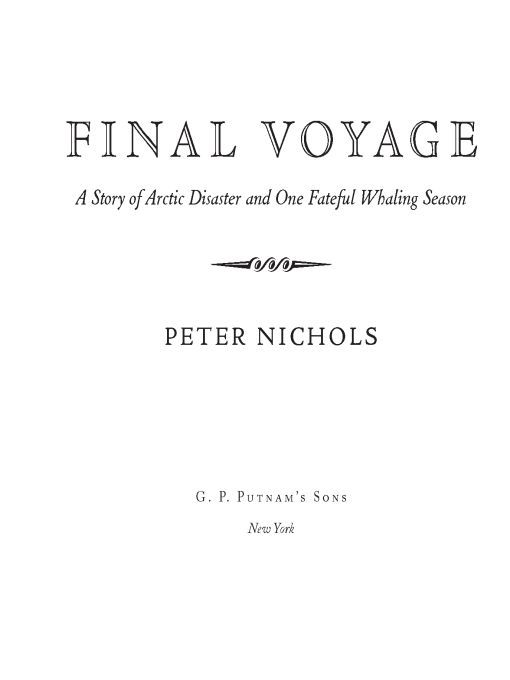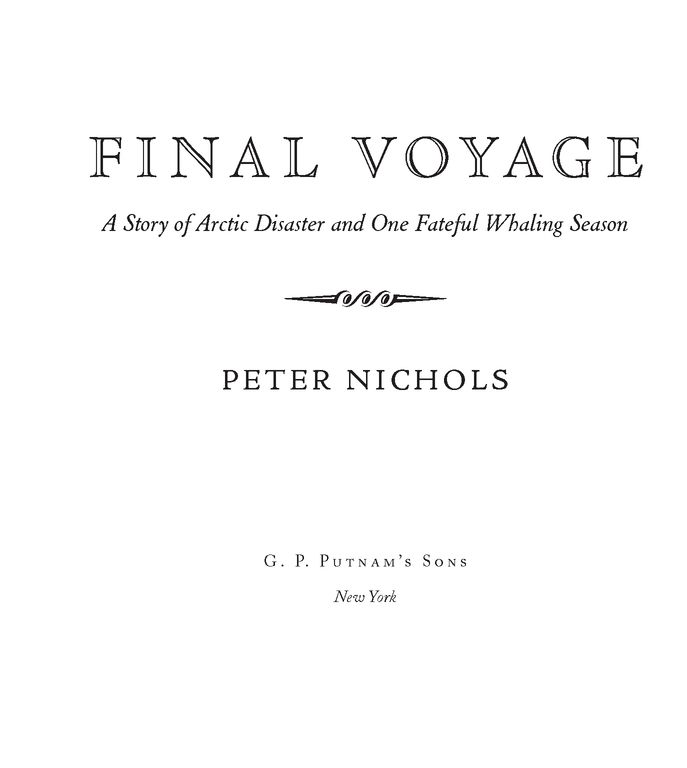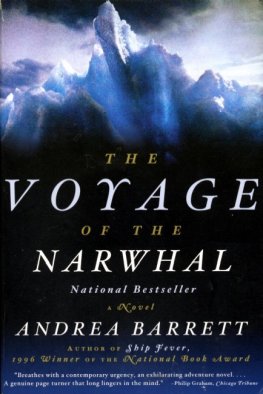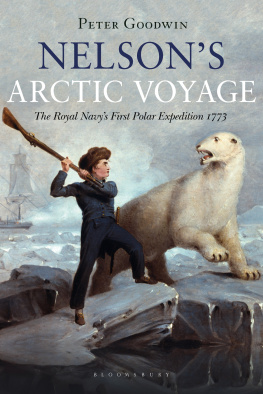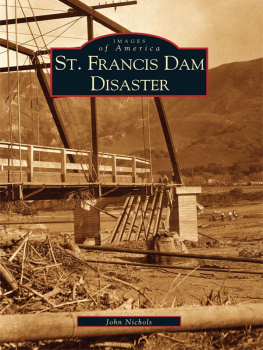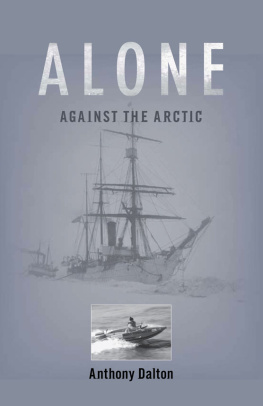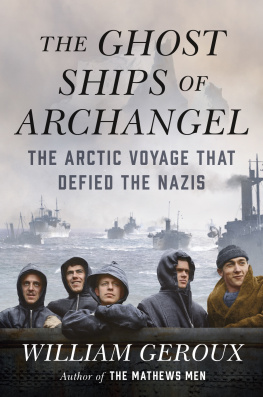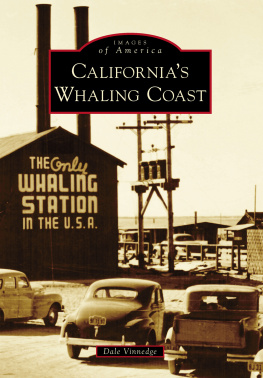Table of Contents
This book is for Gus,
my son, Augustus Paris Nichols.
Prologue
After surging to an all-time peak, oil prices were falling, despite the depletion of fields around the world. Oil itself was talked about as an outmoded commodity, soon to be relegated to the past as cheaper, inexhaustible, emerging energy sources were being developed.
Oil barons and financiers were suddenly facing the loss of an industry that had supported them and supplied the worlds needs for generations. Banks and hitherto bedrock-solid financial institutions were foundering.
Wealthy men were ruined overnight, stunned that they had not seen what was coming, that everything they had believed in and counted upon lay in ruins.
The old paradigm was broken and a new one was overtaking the world.
This, then, was the state of the whale-oil industry 140 years ago.
One
Alaska, June 1871
Early in June 1871, as the whaling bark John Wells, of New Bedford, Massachusetts, approached the snow- and fog-shrouded Siberian shore at the southern entrance to the Bering Strait, the ship was intercepted by a small boat full of wild-looking, fur-clad men. At first the whalemen on the Wellss deck mistook them for Eskimos, natives of this coast. For the most part, New Englanders found the Eskimos, with occasional female exceptions, repellent-looking (made more so by the chin tattoos of the women, and the holes men bored in their cheeks around their mouths, then plugged with ornamental pieces of bone), but these creatures, as they drew closer, looked particularly wretched. All were bearded, their long hair matted, their faces smeared with grease and blackened from crouching over smoky fires. They appeared out of the cold, vaporous air like spectral phantoms, waving and calling, their voices thin and imploring. But their cries were in everyday English. The boat was soon alongside the John Wells, and its ripe-smelling occupants were helped aboard the ship.
One of them introduced himself as Captain Frederick Barker and explained that he and the men with him were the surviving crew of the whaling ship Japan, which had driven ashore on the nearby coast in a storm eight months before. Barker and his men were taken below, where they bathed, shaved, and were given clean clothes. Finally, over a seamans meal of beef, pork, beans, and breadChristian food they had not tasted for eight monthsthey told their story to the Wellss captain, Aaron Dean, and his officers.
They had enjoyed an exceptionally fortunate seasons whaling the previous year, in the summer of 1870. The Japan had pushed through the ice in the Bering Strait and reached the Arctic Ocean whaling grounds by the unusually early date of March 10it was normally July before ice conditions allowed whaleships north of the strait. Their good luck had continued throughout the summer and into the fall. Because of mercurial changes of weather at the seasons close, when summer might be replaced by winter in the space of twenty-four hours, most whaling captains normally started heading south from the Arctic by early September. Lulled by continued fine conditions and an abundance of bowhead whalesand mindful of the injunction given by all whaling ship owners to their captains: You are not to omit taking a whale when you canCaptain Barker delayed his departure by a full month. He continued taking whales even as the autumn rime coated the shore, the true barometer of what was coming.
Early in October, Barker finally turned his ship south. On October 4, a heavy gale struck the Japan, and with it came the full, brutal, change of season. In driving snow, with ice forming in the rigging, Barker and his crew attempted to work the ship through the fast-disappearing channel between the coast and the solidifying ice pack that the storm was hourly driving closer to shore. With the ice and the storm came snow squalls, and between the squalls, the air was filled with a dense, disorienting fog. When even the roughly level plane of the sea beyond the decks became invisible, Barkers world was reduced to an icy, disorienting cloud. Without visual or celestial aids, his navigation exponentially veered toward guesswork as he aimed the Japan for the eye of a geographic needle, the sixty-mile-wide Bering Strait, beyond which lay the open waters of the Bering Sea and the North Pacific.
The benign season had also seduced other whaling captains into postponing their departure from the Arctic, and these ships were now sailing through this same storm. The New Bedford whaleship Elizabeth Swift was not far away. This day blowing a terible gale from the N, noted the Swifts logkeeper on October 5. Waves continually broke aboard the Swift, filling her with water, keeping her men laboring at her pumps. The oar-powered whaleboats carried in davits high above the decks were swept away. As the storm went on, the height of the waves and the force and weight of the water crashing aboard increased. On October 6, a great wave smashed into the ships side and stove our starboard bulwarks all to atoms. Sails blew to ribbons. Another New Bedford whaleship, the Seneca, was seen working heavily through the seas not far away. Neither ship knew its position with any certainty. Dont know whare we are, wrote the Swifts logkeeper. Vary cold. So ends this day.
On October 8, the men aboard the Japan sighted another whaleship through the snow, the Massachusetts, of New Bedford, also running south at speed. The Japan made signals to the other ship, hoping to stay in company with her, for Barker feared the Japan might not weather the storm. But the Massachusetts either did not see the signals or could do little about them, and disappeared into the spumy air.
At the same time, the
Champion, of Marthas Vineyard, lay about sixty miles to the north, behind the
Japan. She had recently caught and cut up four whales, but there hadnt been time before the storm struck to boil the blubber from these into oil and stow the barrels below. Large chunks of whale meat and blubber, called horse pieces, 500 barrels worth, were now stored between decks, the space between the upper deck and the ships hold. This constituted a danger almost as great as the storm, for such deadweight, forty or fifty tons of it, sliding around with every roll and pitch, made the ship dangerously top-heavy, more likely than ever to slew around out of control before the wind and capsize. The
Champions captain, Henry Pease, later described the circumstances aboard his ship as it headed for the Bering Strait:
... ship covered with ice and oil; could only muster four men in a watch, decks flooded with water all the time; no fire to cook with or to warm by, made it the most anxious and miserable time I ever experienced in all my sea-service. During the night shipped a heavy sea, which took off bow and waist boats, davits, slide-boards, and everything attached, staving about 20 barrels of oil.
With the coming of a bleak daylight, the Champions crew lowered the lead line (a lead weight on the end of a rope) in an attempt to get some idea of where they were. They found seventeen fathoms of water beneath the ship and concluded that they had passed through the Bering Strait during the night and were now headed for the rocks of St. Lawrence Island, directly ahead. By then the storm moderated enough to allow them to raise two small sails and haul the ship away from the island, saving themselves from certain shipwreck.

